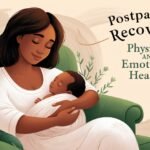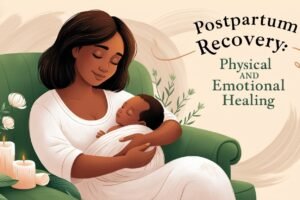What is the relationship between the menstrual cycle after weaning?
The relationship between the menstrual cycle and weaning is often tied to hormonal changes that occur during breastfeeding and post-weaning. Here’s how the menstrual cycle typically behaves after weaning, as outlined in the provided article:
The menstrual cycle after weaning:
Resumption of Menstrual Cycle:
After weaning, a woman’s menstrual cycle usually resumes, although the timing can vary.
Some women may start menstruating again within a few weeks after weaning, while others may take longer, up to several months.
The timeline depends on factors such as hormonal balance, breastfeeding patterns, and how the body adjusts to the cessation of breastfeeding.
- Role of Prolactin:
During breastfeeding, the hormone prolactin, responsible for stimulating milk production, can suppress ovulation and menstruation.
As breastfeeding decreases or stops altogether during weaning, prolactin levels decrease as well, allowing ovulation and menstruation to resume.
Unique Experiences:
It’s important to recognize that every woman’s experience is unique, and there’s no universal timeline for when menstruation will return after weaning.
Factors such as individual physiology and breastfeeding practices can influence the resumption of the menstrual cycle.
Mechanism of Menstrual Suppression During Breastfeeding:
Menstruation typically stops during breastfeeding due to the hormone prolactin.
Prolactin inhibits the release of follicle-stimulating hormone (FSH) and luteinizing hormone (LH), which are necessary for ovulation and menstruation.
Without the surge of FSH and LH, ovulation is suppressed, leading to the absence of menstruation.
Lactational Amenorrhea as Birth Control:
The absence of menstruation during breastfeeding is often referred to as lactational amenorrhea, which serves as a natural form of birth control.
However, it’s essential to understand that breastfeeding is not a guaranteed contraceptive method, as ovulation can still occur unpredictably in some women, even with exclusive and frequent breastfeeding.
Importance of Contraception:
Women who are breastfeeding and want to avoid pregnancy should use additional forms of contraception, as breastfeeding alone may not prevent ovulation and pregnancy reliably.
- Post-Weaning Transition:
Weaning marks a significant step in the motherhood journey, and it’s important to recognize and celebrate the effort involved in providing milk for the baby.
















Add Comment